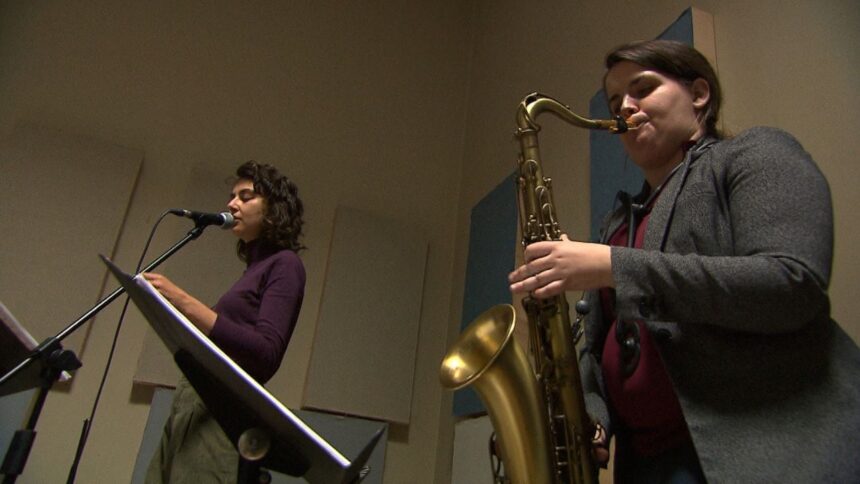The corridors of McGill University’s Schulich School of Music have fallen unnaturally quiet this week as news spread of the indefinite suspension of the Bachelor of Education in Music program. This decision, announced as part of broader budget reduction measures, has sent shockwaves through Montreal’s vibrant cultural community.
“It’s like removing a vital instrument from an orchestra,” reflects Marie-Claude Deschamps, a former graduate who now teaches music at École Joseph-François-Perrault. “This program has been producing Quebec’s finest music educators for generations.”
The suspension comes amidst a series of provincial funding reductions to Quebec universities, with McGill facing particularly difficult financial decisions. The university administration cited a $13 million budget shortfall as necessitating several program evaluations across departments.
Walking through the Schulich Building yesterday afternoon, I encountered small groups of students gathered in hushed conversation. Many expressed not just disappointment but genuine concern for the future of music education in Quebec.
“We’re not just learning how to teach scales and rhythms,” explains Thomas Bergeron, a third-year student who will be among the last cohort to complete the program. “We’re learning how to inspire the next generation of musicians and music lovers. This loss will be felt in elementary and high school classrooms across the province for years to come.”
The program’s distinctive approach combined rigorous musical training with specialized pedagogical techniques. Students received comprehensive instruction in both classical and contemporary teaching methodologies while maintaining high performance standards.
Dr. Eleanor Richards, chair of Music Education at McGill, spoke with me about the program’s unique position in Quebec’s cultural landscape. “Our graduates don’t just teach music—they preserve our musical heritage while fostering innovation. Many go on to become cultural ambassadors for Montreal and Quebec on the world stage.”
The Schulich School of Music has long been considered one of North America’s premier music institutions. Its education program specifically prepared students for Quebec’s unique educational environment, including specialized training for French immersion contexts.
Community response has been swift and vocal. The Quebec Music Educators Association has launched a petition that gathered over 3,000 signatures in just 48 hours. Several prominent Montreal musicians, including members of the Orchestre symphonique de Montréal, have expressed public support for reinstating the program.
“This isn’t simply an academic matter,” notes Jean-Michel Lapointe, president of the Quebec Music Teachers Association. “Music education shapes cultural identity, provides essential cognitive development for children, and maintains Quebec’s rich musical traditions.”
During last evening’s impromptu gathering at Café Santropol—a longtime haunt for McGill music students—I observed something remarkable. Amid their worry, students organized to create an advocacy group aimed at demonstrating the program’s value to university administrators and provincial officials.
The financial realities facing Quebec universities are undeniably challenging. Education Ministry spokesperson Claude St-Pierre confirmed that universities across the province are being asked to identify “programs with lower enrollment or employment outcomes” for potential restructuring.
However, advocates point to research showing that music education graduates have consistently high employment rates in Quebec, with nearly 87% finding positions in their field within six months of graduation.
“This suspension feels shortsighted,” says Professor Emerita Denise Lupien, who taught in the program for over two decades. “Music education isn’t a luxury—it’s fundamental to our educational system and cultural identity.”
The impact extends beyond McGill’s campus. Local schools that traditionally hosted student teachers from the program now face uncertainty about this valuable resource. Elementary school principal Robert Lecavalier from NDG expressed concern: “These student teachers bring fresh energy and contemporary teaching methods to our music classes. Our students benefit tremendously from their presence.”
As I left the Schulich Building yesterday, a small ensemble was practicing in one of the rooms—a poignant reminder of what’s at stake. The music floated through the hallway, a bittersweet soundtrack to this unfolding situation.
The administration has indicated that current students will be able to complete their degrees, but no new admissions will be processed. McGill representatives stated that the program suspension will be reviewed in three years, though many worry that temporary suspensions often become permanent.
In a city whose identity is deeply intertwined with its musical heritage—from the internationally renowned jazz festival to its vibrant classical scene—the loss of dedicated music educators represents more than just an academic reshuffling. It touches the very heart of Montreal’s cultural future.
For now, the music plays on, but many are left wondering who will be teaching the next generation to play.







